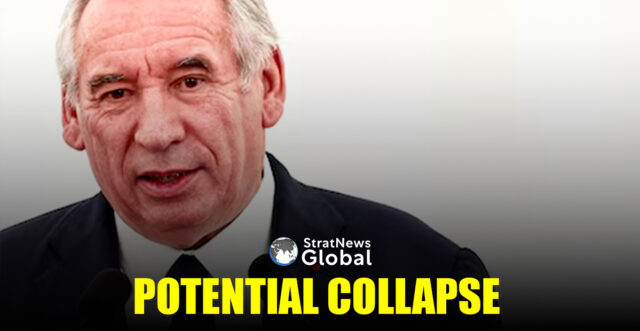Opinion polls released on Wednesday indicated that a majority of French citizens want new parliamentary and presidential elections, as Prime Minister Francois Bayrou’s minority government appears likely to collapse next month.
Two-thirds of people surveyed in two of the three polls also wanted President Emmanuel Macron to resign, and the far-right National Rally (RN) got the most backing to lead the next government in one poll, although not a majority.
The polling points to a deepening of the uncertainty and dissatisfaction with politics in a country that has had only minority cabinets and fragmented parliaments since Macron’s re-election in 2022.
Bayrou’s surprise announcement on Monday that he will seek a confidence vote on September 8 over his 2026 budget plans has thrown France back into crisis, prompting a steep selloff in its stocks and bonds.
The main opposition parties said they would vote against him, meaning the government is all but certain to fall.
If the government falls, Macron could name a new prime minister immediately or call a snap parliamentary election. Some opposition figures have said he should resign.
Macron said last week he does not want a snap election and has ruled out resigning.
Macron lost his previous prime minister, Michel Barnier, to a no-confidence vote over the budget in late 2024, after Barnier had been in office just three months following a previous snap election.
But a vast majority of French people want parliament dissolved for another election, separate surveys by Ifop, Elabe and Toluna Harris Interactive pollsters showed. The surveys showed that from 56% to 69% of those polled want snap parliamentary elections.
The Elabe poll for BFM TV showed 67% wanted Macron to resign if Bayrou loses the confidence vote. The Ifop poll for LCI showed a similar result.
Bulging Debt
The Toluna Harris Interactive poll for RTL showed 41% would want the RN to lead the next government – the highest score for any party, but without a majority. Some 59% were against having an RN prime minister.
The second-highest score, at 38%, would be for the next prime minister not to be a career politician.
Not all the polls asked the same questions in their surveys.
“We want to stress that, in any case, both scenarios (ie new PM or snap elections) would likely mean a prolonged period of uncertainty,” Morgan Stanley analysts wrote in a note.
There is no guarantee, under either scenario, that any new prime minister would be able to pass the budget.
Bayrou has proposed a 44 billion euro budget squeeze, as he tries to tame a deficit that hit 5.8% of gross domestic product last year, nearly double the official EU limit of 3%. He wants to scrap two public holidays and freeze most public spending.
Opposition parties say they agree with Bayrou’s assessment that France’s deficit and debt are too high, but they disagree with his proposals on how to tackle this. The left wants more of the effort to rely on the wealthy, and the far right wants to target migration policies.
“And we suspect that the closer we get to the March 2026 local elections, the more complicated it will be to reach a compromise in parliament,” Morgan Stanley said, pointing towards each group pushing their own agenda as they seek to build support among voters.
Then a political outsider, Macron was first elected in 2017 on promises to break the right-left divide and modernise the euro zone’s second-biggest economy with growth-friendly tax cuts and reforms.
Successive crises – from the protests, COVID-19 and runaway inflation – have shown he has failed to change the country’s overspending habit.
More protests have been called for September 10, two days after the confidence vote, by various groups with disparate aims on social media and backed by leftist parties and some unions.
(With inputs from Reuters)





